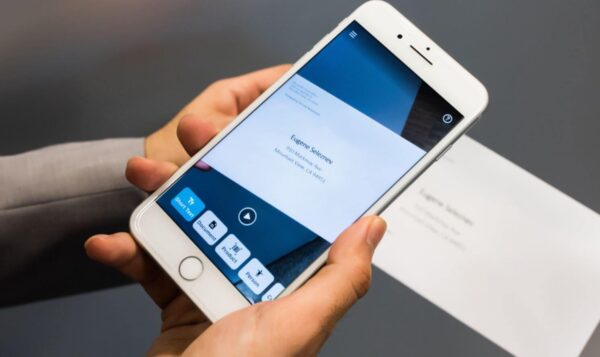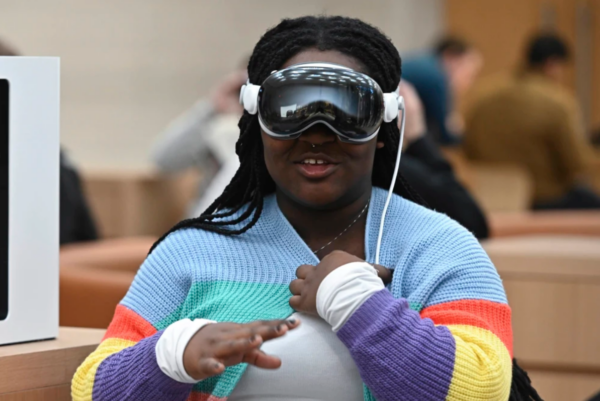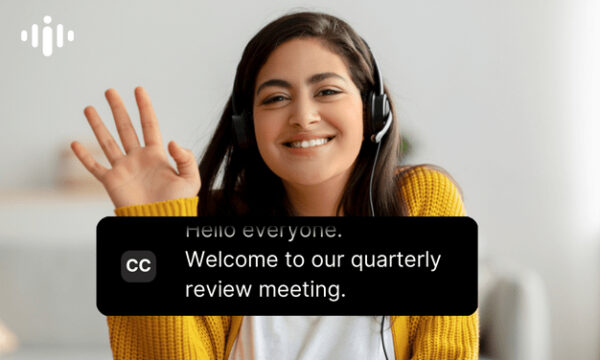Accessibility is still as important as ever in 2024. Not just because it makes your website accessible to everyone, ensuring you’ll be able to reach your entire audience, but also because Google thinks accessibility is important. After all, they want to provide helpful content to their users. And what’s more helpful than content that everyone can access and read? So let’s take a look at some interesting accessibility trends emerging in 2024. They might be of interest to your website.
What is accessibility?
Let’s briefly get on the same page. The goal of digital accessibility is to ensure that all users, regardless of their abilities, can perceive, understand, navigate, and interact with your website.
For more in-depth information, we have a post on how to improve the accessibility of your website.
Why is accessibility important?
There are many reasons, but (we think) these are the three most important ones:
- Firstly, because Google thinks it’s important too. On their website, they state that “Everyone should be able to access and enjoy the web. We’re committed to making that a reality.”
- Secondly, because if you’re not thinking about accessibility, you could be neglecting a huge part of your audience. Which means you could be missing out on engagement and SEO opportunities.
- Thirdly, because the European Accessibility Act has a deadline for compliance of June 28th, 2025. It means websites and apps need to be compliant with WCAG 2.1 AA ruling. This applies to all organizations selling to EU customers by the way; not just companies that are located in Europe.
A bit of context about people’s needs
We all know that the pandemic changed people’s shopping habits. Everyone was ordering things online. After the pandemic, however, people didn’t revert back to their old shopping habits. They still order online a lot, but people also want the option to visit a store. Meaning: they want the best of both worlds. As a business, it’s good to keep this in mind.
Accessibility trends in 2024
Let’s go over some emerging trends in the field of accessibility.
A new demographic?
When you think of ‘old people’, you might picture a white-haired person who has no idea how to turn on the computer at the library. But that’s not true anymore!
A lot of people who will soon retire have spent the last 20 years working with computers (in the workplace). And they probably want to continue using technology as they get older. But as people get older, their vision or mobility for example might worsen. Which means they’ll need websites and apps to be accessible.
New assistive technology
If you’ve done research on accessibility, you’re probably familiar with screen readers. They help people with visual impairments to use a website or app. But the world is slowly moving on as technology keeps evolving.
Take SeeingAI, for example. It’s a smartphone app that narrates the world around you. It helps with describing photos, identifying products in the supermarket, and much more.

And we can’t forget about eye tracking technology, which has been part of assistive technologies for people with disabilities for years. With the announcement of Apple Vision Pro, it’s clear that huge steps have already been made.

A more involved AI tool
Since AI technologies are booming, it’s not a leap to consider that a personalized AI interface will be developed soon. Think of a tool that finds the information you’re looking for from multiple websites and apps, then presents it back to you in an interface which suits you best.
But in order for this tool to work, your website needs to be accessible and easy to crawl.
AI-powered captioning
To stay in the realm of AI, AI-driven captioning tools are becoming more accurate and reliable too. Now, you can offer real-time transcription for videos, webinars, and live streams. Which means you’ll be able to engage with everyone in your audience, including users with hearing impairments.

More and better voice technology
We can’t talk about new assistive technologies and not mention voice-controlled technologies and interfaces. These can be especially useful for people with mobility impairments.
But it can also be helpful for people who get easily overwhelmed or anxious while doing certain tasks, such as banking. Imagine a voice-controlled interface that asks you what you want, then gives you the results. That does sound more relaxing than navigating hundreds of functions and capabilities on a small screen, doesn’t it?
Read more: Voice-to-text: The future of search? »
Should you keep up with all the trends?
It’s good to remember that your business doesn’t need to be compatible with all these new tools and technologies. However, we think it can only benefit your brand. By showing users that you care about their needs, you’ll create a bigger and more loyal audience.
How to leverage these new accessibility trends in 2024
While it might sound like a lot of work to become compatible with these new tools, it doesn’t have to be. Since most tools use some type of machine learning, it’s good to get your website basics in order. Make sure your site has a sitemap, and a clear and logical site structure. Luckily, if you use the Yoast SEO plugin, we take care of the sitemap for you!
Once you’re done polishing your basics, it might be interesting to see if you can change the way you present your content. Perhaps you can try a new assistive technology and see how well it works with your website. If the answer is ‘not so great’, it might be worth changing things up.
Keep reading: Why accessibility is important (in the time of AI) »
The post Accessibility trends in 2024 appeared first on Yoast.